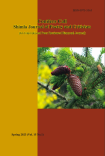Wole Soyinka: Artist as a Social Activist
In Nigeria, Yoruba population theatre groups have always served as the most forthright
representation of anti-establishment campaign. Given the nature of social and political context
from which Wole Soyinka’s drama emerges, there is in it a similar acceptance of drama as a vital
measure of socio-political indictment. Soyinka is acutely sensitive to the changes in Nigerian political-situation, especially the negative social, political and economic trends of neo-colonial establishment. The early sixties were a hot arena in Nigerian political situation, when corruption was rampant and there was total anarchy in the state. It was in the backdrop of such political and social disorder that Soyinka raised a voice “against neo-colonialism, ethnic nepotism, political partisanship and corruption.”
The existing turmoil in Nigerian society owing to the failure of leadership on the part of
the first generation of post-independence politicians, together with the disastrous consequences of economic hardship, civil disorder, war and human carnage made Soyinka think about his role as a writer and as a citizen. Soyinka utilized his theatre group to produce political satires “often in buildings barricaded against armed thugs hired by local electioneering chiefs.”2 He is a revolutionary in true sense of the word. Not content with changes, now and then, he wanted society to change radically. Therefore, he is unequivocal in voicing his protest against the existing social mores as well as dead and worn out conventions.
Vinay M. Sharma

